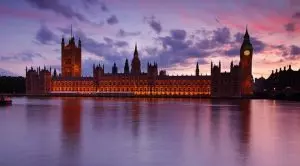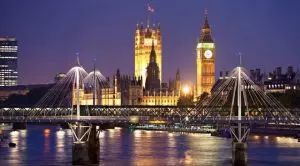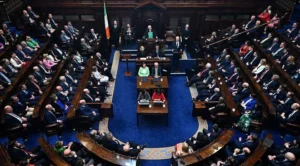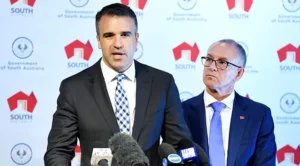 Following the increased reports of British politicians receiving a great variety of incentives to lobby in favour of the country’s gambling sector, long-time anti-gambling campaigner Matt Zarb-Cousin criticised the Members of Parliament who have preferred to take care of their own comfort and accepted the gifts of the gambling companies in return for becoming their voice in Parliament.
Following the increased reports of British politicians receiving a great variety of incentives to lobby in favour of the country’s gambling sector, long-time anti-gambling campaigner Matt Zarb-Cousin criticised the Members of Parliament who have preferred to take care of their own comfort and accepted the gifts of the gambling companies in return for becoming their voice in Parliament.
After the decision of Prime Minister Tony Blair’s Government to liberalise the UK gambling laws in 2005, things in the local gambling sector inevitably changed. At the time when a more relaxed regulation of the industry was adopted, the move was supposed to have marked a two-sided deal because, in return for more freedom, gambling companies became subject to domestic regulation and taxation. Gambling companies, however, had different ideas, and despite getting more prerogatives in the UK gambling industry, many of them decided to move offshore choosing destinations considered tax havens, such as the Isle of Man and Gibraltar.
The Gambling Act of 2005 might have been aimed at turning the UK into a leading gambling hub in Europe, but it resulted in massive losses not only for customers but for the country as well. A large number of gambling operators are being exported offshore, and with them, corporation tax revenue and jobs also disappear from the market. On the other hand, according to Mr Zarb-Cousin, gambling harm is constantly increasing in the country, with Public Health England having estimated its cost at about £1.27 billion on an annual basis.
28 MPs Found to Have Received Gifts and Hospitality from the UK Gambling Industry
 Earlier this year, it was revealed that Sir Charles Geoffrey Cox – a Member of Parliament from the Conservative Party – worked for a tax haven and against the interests of the UK Government. After that, it was also revealed that a total of 28 Members of Parliament – 19 from the Conservative and 9 from the Labor Party – had received special incentives in the form of gifts and hospitality totalling £225,000 from the local gambling industry over the past year. As Mr Zarb-Cousin explained, much of the money they received in the form of free gifts came from online gambling operators that avoid taxes in the UK.
Earlier this year, it was revealed that Sir Charles Geoffrey Cox – a Member of Parliament from the Conservative Party – worked for a tax haven and against the interests of the UK Government. After that, it was also revealed that a total of 28 Members of Parliament – 19 from the Conservative and 9 from the Labor Party – had received special incentives in the form of gifts and hospitality totalling £225,000 from the local gambling industry over the past year. As Mr Zarb-Cousin explained, much of the money they received in the form of free gifts came from online gambling operators that avoid taxes in the UK.
The revelations raised many questions, especially whose interests have these MPs been serving the whole time.
The UK gambling industry has long been criticised for its willingness to maintain close relationships with some Members of Parliament. Such a thing, however, is not uncommon, because gambling operators have been investing time, efforts and money into creating a strong lobby to take care of their interests in Parliament, especially now, while the Government is in the middle of a comprehensive review of the country’s gambling legislative and regulatory framework.,
The thing is that the UK Government is fully aware of the fact that the local gambling industry desperately needs some reforms in order to start placing customer protection as a paramount priority and keep players protected against gambling-related harm. At the same time, the sector needs all the supporters it can get, provided the fact that operators have been strongly criticised for some of the practices they use to attract and retain new customers.
According to some findings of the gambling industry select committee of the House of Lords, only 5% of British customers, who were described either as gambling addicts or were considered at risk of becoming problem gamblers, accounted for 60% of the industry’s profits.
Gambling Lobby Outraged by Suggested Affordability Checks and Deposit Limits
 As previously reported by Casino Guardian, gambling operators have long been criticised for their business model that allows them to take advantage of a small number of their customers who are avid gamblers but spend much more than they can really afford to lose.
As previously reported by Casino Guardian, gambling operators have long been criticised for their business model that allows them to take advantage of a small number of their customers who are avid gamblers but spend much more than they can really afford to lose.
According to the long-time anti-gambling advocate Matt Zarb-Cousin, another major problem is that the UK Government still sees gambling as more of a leisure activity than an actual public health issue, although the first categorisation does not exclude the second one. Not to mention that even the gambling sector can be considered a leisure activity, it still needs some controls to be put in place in order to ensure adequate customer protection. In addition, the industry and its political lobby were outraged at the time when the Social Market Foundation suggested that affordability checks are carried out every time when a customer was willing to make a deposit exceeding £100 a month, and the UK Gambling Commission (UKGC) held consultations on proposed checks for losses of more than £125 a month.
Mr Zarb-Cousin compared gambling disorders with drug addiction, saying that the knowledge of problem gambling has considerably evolved since the Blair Government liberalised the local gambling industry in 2005. He, however, said that instead of using this knowledge for adopting adequate measures that would protect local customers from unwanted gambling-related harm, certain MPs have been lobbying for no changes to be brought to the regulations of the sector. Even more, the political lobby of the local gambling industry has been warning of the black market emerging in case the Government boosts customer protection.
Mr Zarb-Cousin criticised Members of Parliament who willingly accept hospitality and gifts from gambling companies that operate in unregulated markets and take advantage of local customers. He suggested that such lobbyists should ask the representatives of online gambling companies to make them withdraw from jurisdictions they are currently not licensed to operate in or simply come back to the domestic market of the UK and pay the country’s corporation tax, respectively.
It is yet unknown whether the fierce criticism that is being currently faced by both gambling companies and Members of Parliament could result in finally putting an end to the gifts granted to local politicians in return for their support in Parliament. The interests of gambling operators are not in line with the ones of the country, so it is no surprise that their policies are not aligned to the ones of the Government.
- Author


